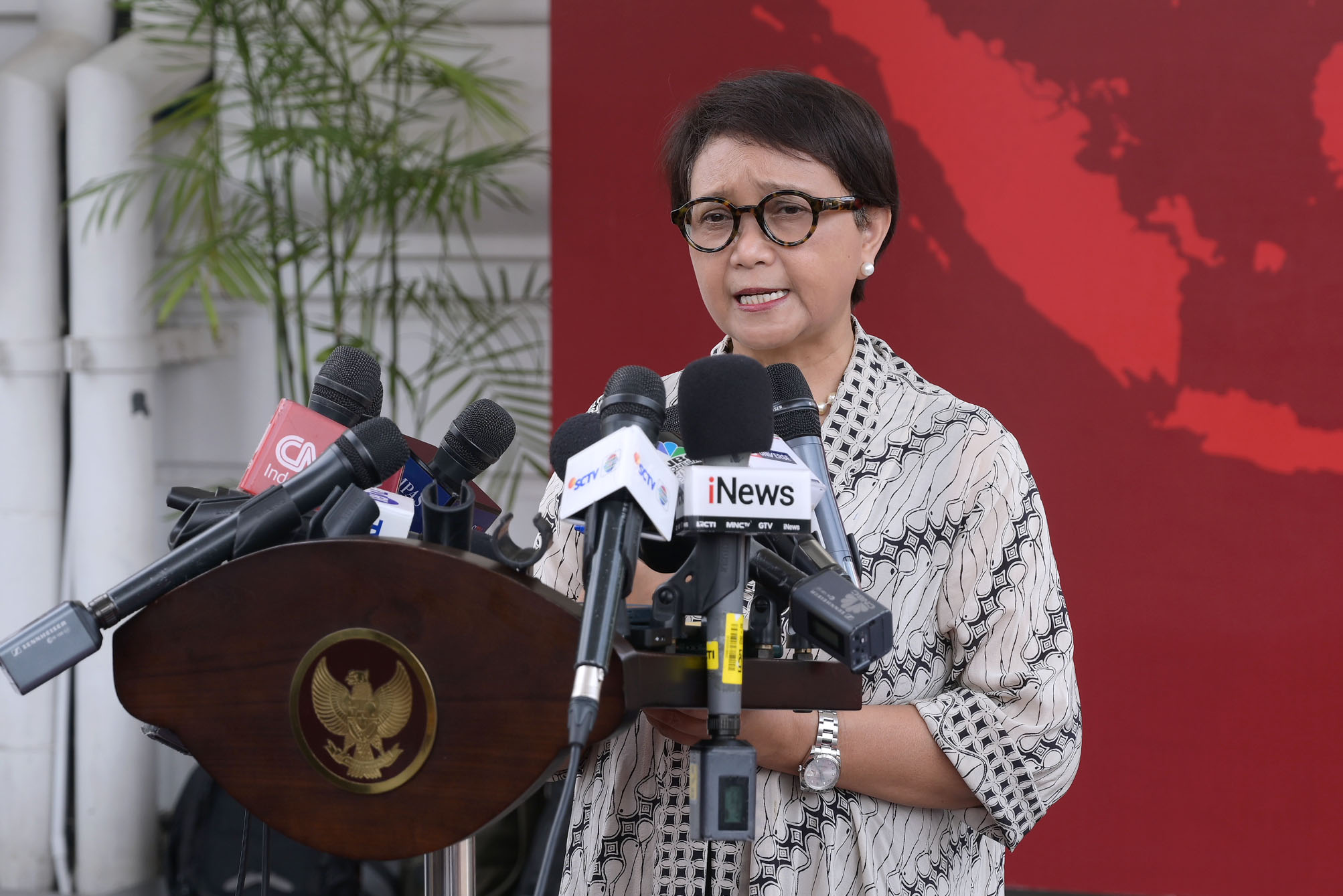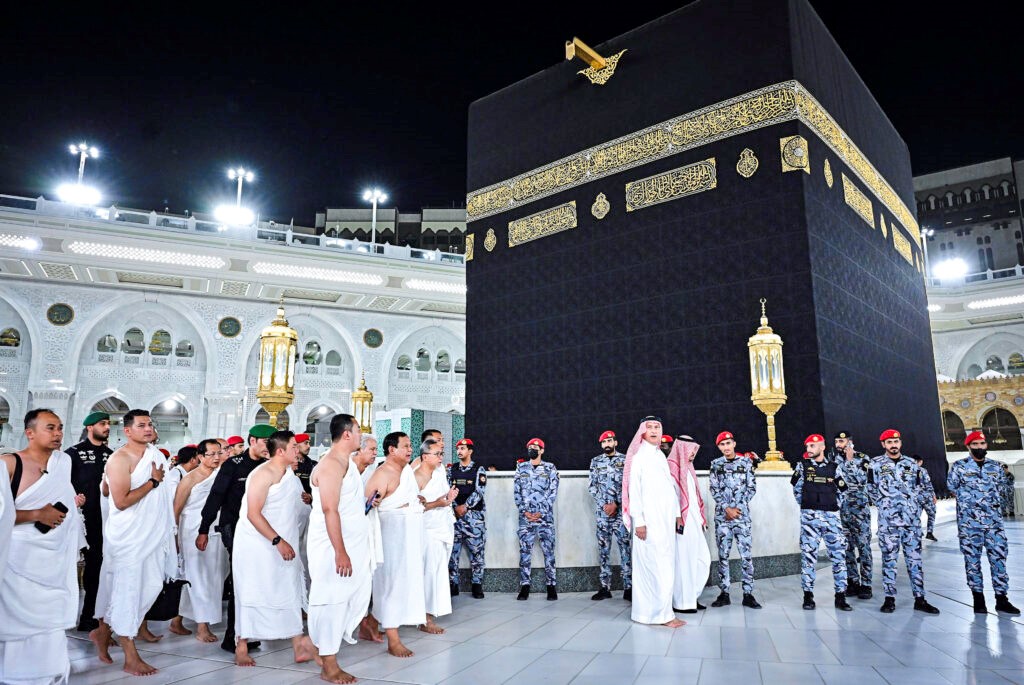Indonesia Calls for De-escalation of Middle East Conflict

Foreign Minister Retno LP Marsudi gives a press statement, Tuesday (04/16), at the Presidential Palace Complex, Jakarta. (Photo by: Public Relations of Cabinet Secretariat/Oji)
The Indonesian Government continues to make diplomatic move to de-escalate the current geopolitical situation in the Middle East, according to Indonesian Minister of Foreign Affairs Retno LP Marsudi.
“The President has delivered two statements, instructing us to constantly make diplomatic efforts to make the parties concerned restrain themselves and avoid escalation because escalation will not benefit anyone,” Retno said after attending a limited meeting chaired by President Joko “Jokowi” Widodo at the Presidential Palace in Jakarta, Tuesday (04/16).
The Minister also revealed that in the last few days Indonesia has carried out intensive communication with a number of parties, including Iran, Saudi Arabia, Jordan, Egypt, the United Arab Emirates, the European Union, Germany, the Netherlands and the United States to urge all parties concerned to restrain themselves and to prevent escalation.
“Once again, we are monitoring closely [the situation], staying alert, and constantly making diplomatic efforts to urge all the parties concerned to keep guard and exercise self-restraint, and we are persuading as many parties as possible to use their influence to prevent escalation,” she said.
Regarding the protection for Indonesian citizens, Retno said that the Government continues monitoring and taking steps to ensure the protection for Indonesian citizens in areas that may be affected by the situation in the Middle East.
“We continue communicating and coordinating with several Embassies of the Republic of Indonesia, especially those in Amman, Tehran, then in Egypt and in other places,” she said.
The Minister also explained that on April 13, her Ministry had issued travel advice and provided a hotline that Indonesian citizens can contact.
On April 14, she added, the Ministry also made direct contact with Indonesian citizens living in Iran and Israel to inform them of the steps they could take should something happens or if the escalation continues to increase.
“So far, thank God, Indonesian citizens are in good condition, meaning they are not affected by the current situation. We keep monitoring closely [the situation] and almost everyday staff from Ministry of Foreign Affairs holds virtual meetings with the Indonesian Embassies in areas that could be affected if an escalation occurs, including finalizing contingency plans,” she said.
Meanwhile, Coordinating Minister for Economic Affairs Airlangga Hartarto revealed that the Government also stays alert and continues mitigating the impact of tensions in the Middle East on Indonesia’s economy.
“From economic perspective, we saw a spike in oil prices due to the Israeli attack on the Iranian Embassy in Damascus and also the retaliation carried out by Iran. From economic perspective, the Red Sea and the Strait of Hormuz are important, especially because 33,000 oil vessels are passing the Strait of Hormuz and around 27,000 oil vessels are passing the Red Sea. And increasing freight costs are among issues that must be addressed,” Airlanga said.
Fundamentally, Airlangga, added Indonesia’s economy is growing solidly in the range of five percent, inflation is in the range of 2.5 plus or minus one percent, the trade balance is in surplus, and the foreign exchange reserves are around US$136 billion. However, the Government, he added, continues anticipating the impact of worsening global economic uncertainty on the national economy.
“We certainly need to implement several policies, including mixed fiscal and monetary policies, maintain exchange rate stability, maintain the State Budget, and monitor increases in logistics and oil prices,” Airlangga said, adding that the Government also continuously carries out structural reforms while improving the investment climate in Indonesia.
“The Government continues monitoring structural reforms, maintaining investors’ expectations, strengthening competitiveness, and attracting long-term investment to Indonesia. So, these certainties must be maintained, and various scenarios will be discussed later. And we also ensure that the deficit remains within the range permitted by law,” Airlangga remarked. (FID/TGH/UN)








